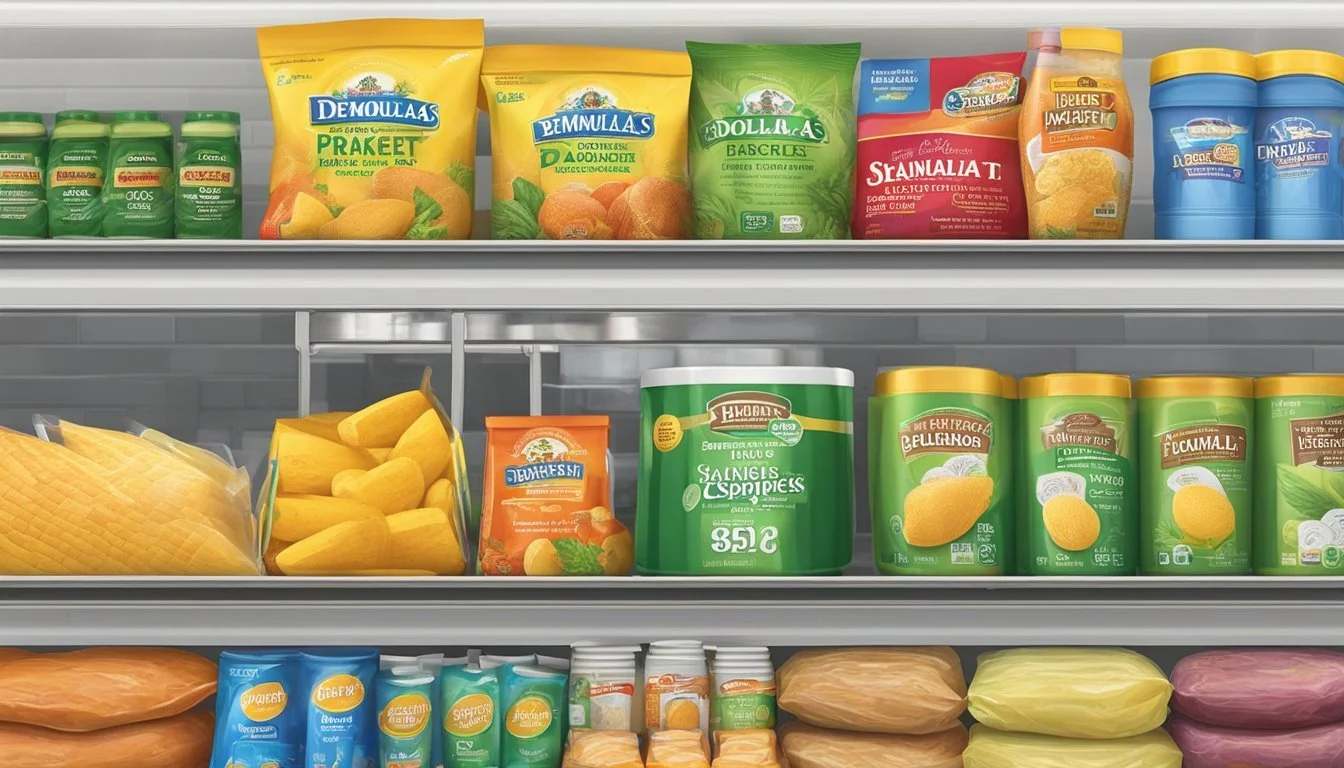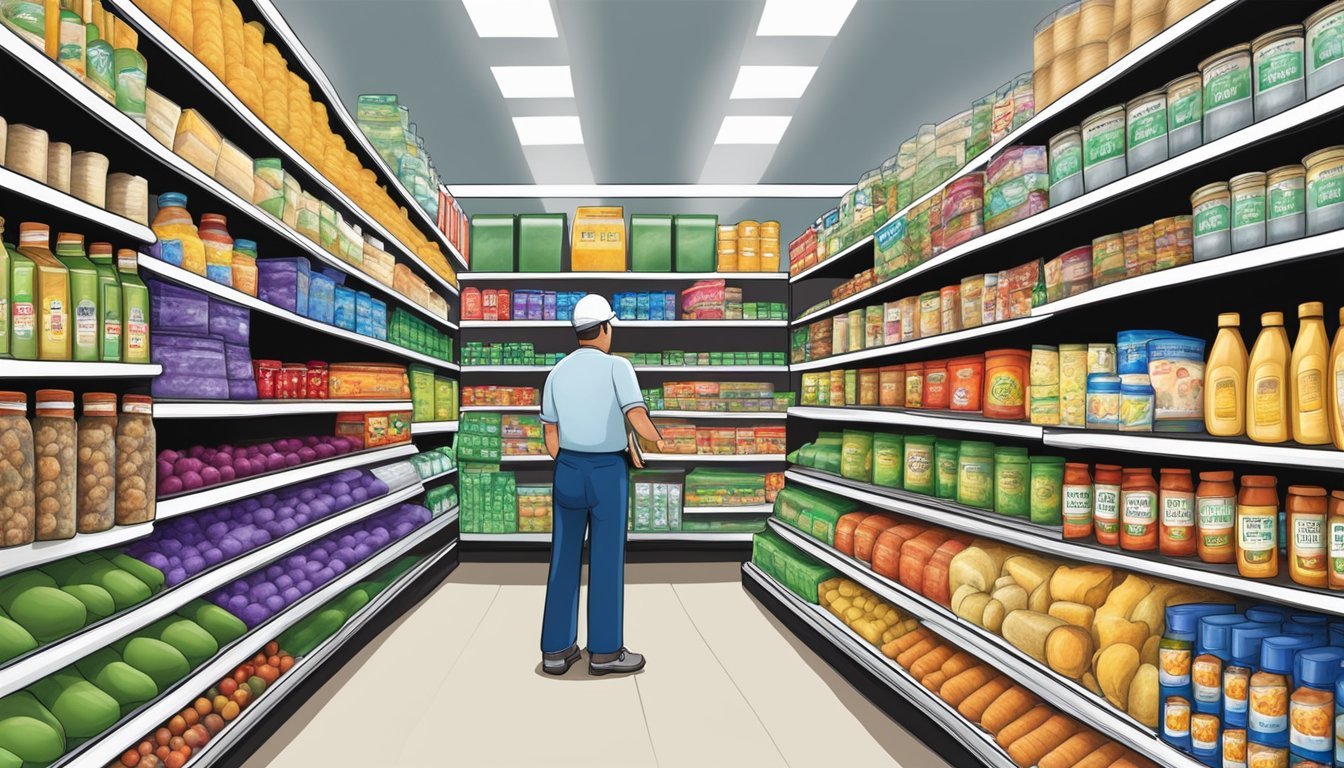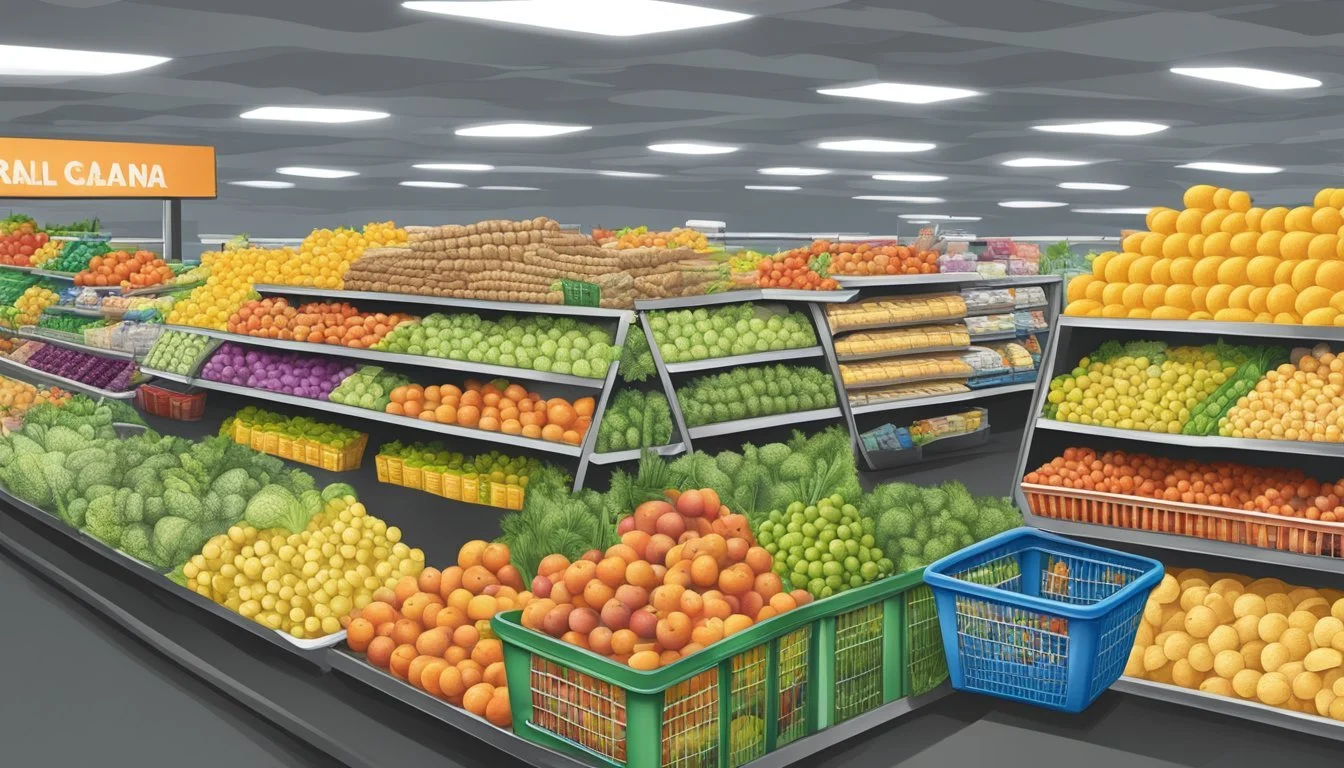Is Demoulas Market Basket Cheaper Than Dollar General?
A price comparison of two budget-friendly retailers
Demoulas Market Basket and Dollar General are both known for offering affordable prices to their customers. Market Basket, a regional supermarket chain in New England, has built a reputation for providing quality groceries at competitive rates. Dollar General, a national discount retailer, focuses on offering everyday essentials at low prices.
Market Basket generally offers lower prices on groceries compared to Dollar General. While Dollar General may have some cheaper individual items, Market Basket's overall grocery selection tends to be more affordable. Market Basket's business model centers on high-volume sales with thin profit margins, allowing them to keep prices low across their entire range of products.
Market Basket's commitment to value extends beyond just low prices. They offer a wide variety of fresh produce, meats, and bakery items that Dollar General typically doesn't stock. This combination of affordability and selection has earned Market Basket a loyal customer base. Shoppers often find they can save significantly on their total grocery bill by choosing Market Basket over other options, including discount stores like Dollar General.
History and Background
Demoulas Market Basket and Dollar General have distinct origins and growth trajectories in the American retail landscape. These companies have shaped regional grocery markets and discount store sectors respectively.
The Rise of Demoulas Market Basket
Demoulas Market Basket traces its roots to 1917 when Greek immigrants Athanasios and Efrosini Demoulas opened a small grocery store in Lowell, Massachusetts. The business initially specialized in fresh lamb, catering to the local community.
In 1954, brothers Telemachus and George Demoulas purchased the store from their parents for $15,000. This marked the beginning of the company's expansion.
The transition to the Market Basket name began in 1975, though some stores retained DeMoulas branding for years after. As of 2023, Market Basket operates 88 stores across New England, including locations in Massachusetts, New Hampshire, Maine, and Rhode Island.
Dollar General's Expansion
Dollar General's history began in 1939 when J.L. Turner and his son Cal opened J.L. Turner and Son Wholesale in Scottsville, Kentucky. The company's first dollar store opened in 1955 in Springfield, Kentucky.
By 1968, the business had grown significantly and changed its name to Dollar General Corporation. The company went public in 1968, enabling rapid expansion.
Dollar General has since become a nationwide chain, focusing on small-format stores in rural and suburban areas. Its business model emphasizes low prices and convenience, targeting budget-conscious consumers.
New England's Grocery Landscape
New England's grocery market has been shaped by regional chains like Market Basket, as well as national players. Market Basket has maintained a strong presence, particularly in Massachusetts and New Hampshire.
The company's headquarters in Tewksbury, Massachusetts, serves as the hub for its operations. Market Basket has cultivated a loyal customer base through competitive pricing and a reputation for quality products.
In 2014, Market Basket faced a significant challenge when a family dispute led to widespread employee protests and customer boycotts. The resolution of this conflict demonstrated the strong community ties the chain had developed over decades.
Pricing Strategies
Market Basket and Dollar General employ distinct pricing approaches to attract and retain customers. Both aim to offer competitive prices, but their strategies differ in key ways.
Market Basket's Low Price Commitment
Market Basket's pricing strategy revolves around a steadfast commitment to low prices. In 2022, consumer data firm Dunnhuby ranked Market Basket among the most affordable grocery chains. The company maintains its competitive edge by keeping operating costs low and passing savings to customers.
Market Basket's "More for Your Dollar" philosophy translates to significant savings for shoppers. A family spending $250 weekly on groceries could save $2,300 annually by choosing Market Basket over competitors.
The chain focuses on providing value across its entire product range. This approach helps Market Basket compete effectively with larger retailers like Walmart and Aldi.
Dollar General's Pricing Tactics
Dollar General employs a different pricing strategy, focusing on convenience and targeted discounts. The company positions itself as a neighborhood store offering everyday low prices on essential items.
Dollar General keeps prices low through various tactics:
Smaller package sizes
Limited product selection
Lower wage structures
A 2021 survey found that 92% of Dollar General workers earn less than $15 an hour, contributing to reduced operating costs.
The chain uses strategic pricing on key items to create a perception of overall value. However, comparison studies have shown that Walmart's food prices are generally 6.6% lower than Dollar General's.
Store Operations and Experience
Market Basket and Dollar General have distinct approaches to store operations and customer experience. These differences impact shopping environments and employee interactions.
Market Basket's Store Culture
Market Basket fosters a unique culture centered on customer service and employee satisfaction. The company offers competitive wages and profit-sharing, starting employees at $12 per hour. This approach contributes to low turnover and experienced staff.
Market Basket stores maintain a traditional supermarket layout. Shelves are well-stocked, and employees are readily available to assist customers. The company eschews self-checkout lanes, prioritizing personal interactions.
Management emphasizes a family-oriented atmosphere. This culture was evident during the 2014 employee protests, where workers and customers united to support the company's leadership.
Shopping Environment at Dollar General
Dollar General operates with a lean staffing model to keep costs low. Stores typically have fewer employees on duty compared to traditional supermarkets. This can lead to longer checkout lines and less assistance on the sales floor.
The store layout is compact and efficient. Aisles are narrower, and products are often displayed in their shipping boxes to reduce labor costs. This approach can make stores feel cramped during busy periods.
Dollar General focuses on quick, convenient shopping trips. Stores stock a limited selection of groceries and household items. Self-checkout options are available in some locations to expedite the purchasing process.
Product Offerings
Market Basket and Dollar General have distinct approaches to their product selections. Their inventories cater to different customer needs and shopping preferences.
Variety and Quality of Goods at Market Basket
Market Basket offers a wide range of products typically found in a full-service supermarket. Their produce section features fresh fruits and vegetables, often sourced locally when possible. The meat department provides various cuts of beef, pork, and poultry, including both conventional and organic options.
Market Basket's deli counter offers freshly sliced meats and cheeses, along with prepared salads and hot foods. The bakery produces bread, cakes, and pastries daily. In the seafood section, customers find fresh fish and shellfish.
The dairy aisle stocks milk, cheese, yogurt, and other refrigerated items. Market Basket also maintains a comprehensive grocery selection with both name-brand and private-label products.
Dollar General's Inventory Selection
Dollar General focuses on providing essential items at low prices. Their inventory includes a limited selection of groceries, emphasizing non-perishable goods and pantry staples. Customers can find canned foods, cereals, and snacks.
The store offers some refrigerated and frozen items, but the selection is usually smaller than a typical supermarket. Dollar General stocks basic household supplies, cleaning products, and personal care items.
Their inventory also includes seasonal merchandise, clothing, and basic home goods. While Dollar General may carry some produce and dairy products, the variety is often limited compared to full-service grocery stores.
Customer Loyalty and Programs
Demoulas Market Basket and Dollar General take different approaches to fostering customer loyalty. Market Basket relies on consistently low prices and quality products, while Dollar General offers specific loyalty programs and initiatives.
Demoulas Market Basket's Loyalty Rewards
Market Basket doesn't offer traditional loyalty programs or rewards cards. Instead, the company focuses on keeping prices low for all customers. This strategy has cultivated a loyal customer base that appreciates consistent value.
Market Basket's approach emphasizes equal treatment for all shoppers. By avoiding complex loyalty schemes, the company streamlines operations and passes savings to customers. This simplicity resonates with many consumers who prefer straightforward pricing.
The chain's commitment to affordability has created strong customer loyalty. Shoppers often travel farther to visit Market Basket stores, demonstrating their dedication to the brand.
Dollar General's Customer Initiatives
Dollar General employs more conventional loyalty tactics. The company offers a digital coupon program where customers can load discounts onto their account. These coupons are then applied automatically at checkout.
The DG Digital Coupons program allows shoppers to save on specific items. Customers can browse available offers on the Dollar General app or website. This system provides targeted savings while encouraging repeat visits.
Dollar General also runs periodic promotions and sales events. These initiatives aim to drive traffic and boost customer engagement. The company's approach combines everyday low prices with additional savings opportunities.
By leveraging technology and promotional strategies, Dollar General seeks to build customer relationships and encourage loyalty through targeted incentives and discounts.
Business Models and Financial Health
Market Basket and Dollar General employ distinct strategies to attract customers and maintain profitability. Their business structures and economic outlooks shape their pricing and operational approaches.
Market Basket's Business Structure
Market Basket operates as a privately-held company with a unique profit-sharing model. Employees receive a substantial portion of company profits, fostering loyalty and dedication. This structure allows Market Basket to keep prices low while maintaining quality.
The company's board of directors, previously embroiled in family disputes, now oversees operations under Arthur T. Demoulas's leadership. Market Basket's revenue comes primarily from its supermarket sales across New England.
Market Basket's assets include over 80 stores, distribution centers, and a strong brand reputation for affordability and customer service.
Dollar General's Economic Outlook
Dollar General operates as a publicly-traded company with over 17,000 stores nationwide. Its business model focuses on small-format stores in rural and suburban areas, offering everyday essentials at low prices.
The company's revenue streams include sales of groceries, household items, and seasonal merchandise. Dollar General's economic outlook remains strong, with consistent store expansions and sales growth.
Dollar General's board of directors guides strategic decisions to maintain competitiveness in the discount retail sector. The company's assets encompass its vast store network, distribution centers, and private-label brands.
Controversies and Challenges
Both Demoulas Market Basket and Dollar General have faced significant controversies and challenges over the years. These issues have impacted their operations, public perception, and business practices in various ways.
Demoulas's Internal Disputes
The Demoulas family feud caused major disruptions at Market Basket. In 2014, Arthur T. Demoulas was ousted as CEO by his cousin Arthur S. Demoulas, sparking massive employee protests and customer boycotts. Workers picketed stores and refused to stock shelves. The strike lasted six weeks, costing the company millions in lost revenue.
Longtime employees were fiercely loyal to Arthur T., viewing him as a generous leader who prioritized worker benefits. The dispute highlighted tensions between profit-focused and employee-focused management styles. Eventually, Arthur T. regained control by purchasing the company for $1.5 billion, ending the standoff.
Dollar General's Criticisms and Legal Matters
Dollar General has faced criticism for its labor practices and store conditions. The company has been accused of wage violations and inadequate staffing, leading to crowded, poorly maintained stores. Multiple lawsuits have been filed by employees alleging unpaid overtime and other labor law breaches.
The retailer has also dealt with product safety concerns. In 2018, they paid $1.75 million to settle allegations of selling expired over-the-counter drugs. Dollar General's rapid expansion has sometimes outpaced its ability to maintain consistent store quality and regulatory compliance.
Pricing practices have drawn scrutiny too. Critics argue their "dollar" branding is misleading, as many items cost more. The company has faced legal challenges over deceptive pricing claims in several states.
Comparative Assessment
Demoulas Market Basket and Dollar General offer distinct shopping experiences with different pricing strategies and product selections. Their approaches to affordability and value vary based on their business models and target customers.
Evaluating Price Points and Value
Market Basket consistently maintains lower prices on many grocery items compared to competitors. Their pricing strategy focuses on everyday low prices rather than frequent sales or promotions. Dollar General, while known for its $1 items, also offers products at various price points.
Market Basket's larger product selection, including fresh produce and meats, provides more comprehensive grocery shopping. Dollar General's smaller format stores offer convenience but a limited range of fresh foods.
A 2022 study by Dunnhuby ranked Market Basket highly for affordability among over 60 grocery chains, competing with larger retailers like Walmart and Aldi on price.
Customer Perceptions and Preferences
Market Basket has cultivated a loyal customer base, particularly in New England. Shoppers appreciate the company's commitment to low prices without compromising quality. The chain's family-owned history and employee-focused culture resonate with many customers.
Dollar General attracts budget-conscious shoppers looking for quick, convenient purchases. Its widespread locations in rural and urban areas make it accessible to a broad customer base.
Market Basket's larger stores offer a traditional supermarket experience, while Dollar General's smaller format appeals to those seeking rapid transactions or specific discount items.
Adaptation to Market Trends and Changes
Market Basket has shown resilience in the face of industry changes and economic pressures. The company has expanded its store network, opening new locations to meet customer demand. Its ability to maintain low prices during periods of inflation has strengthened its market position.
Dollar General has adapted by introducing more grocery items and fresh produce in select stores, responding to changing consumer needs. The company's rapid expansion strategy has increased its market presence.
Both retailers have faced challenges from online grocery shopping and changing consumer preferences. Market Basket has focused on in-store experiences, while Dollar General has explored e-commerce options to complement its physical stores.










